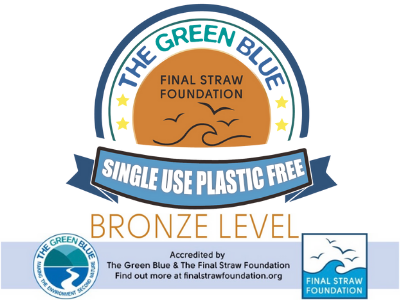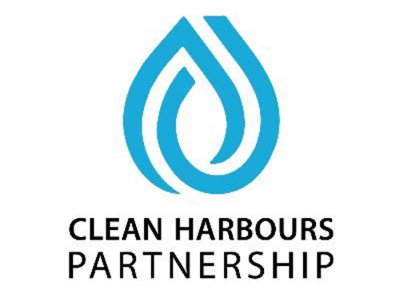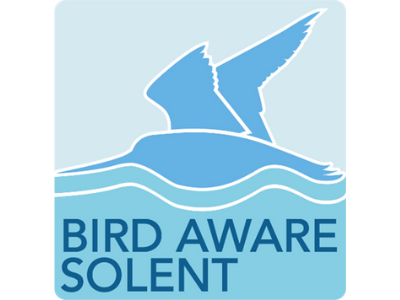Our Environment Matters
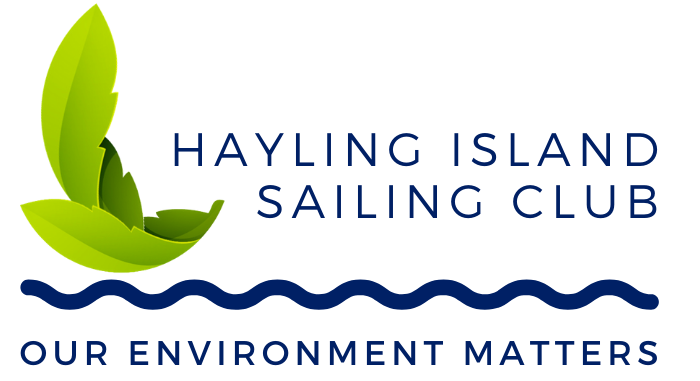
Contact the HISC Office who will pass your email on to our environmental officer, Emma.
At HISC we are always looking for ways to improve our efforts to fight plastic pollution, reduce our environmental footprint and leave the sea and beaches in a better state than we find them now. This year we have changed our waste collection contract to include food waste and increase the capacity for cans, plastic and card.
Emma Toman – Environmental Officer
Priorities
Our key actions are to:
- Benchmark using the RYA and British Marine’s GreenBlue programme to become greener.
- Work with local groups (Chichester Harbour Conservancy, Bird Aware, Clean Harbours Partnership) to maintain and improve our local environment.
- Actively reduce our use of single use plastics; we hold Bronze certification from the Final Straw Foundation.
- Raise awareness of environmental topics through our briefings, website, newsletters and notice boards.
- Encourage participation in green initiatives like the Borrow Bag scheme to stop fabric going to landfill and remove plastic bags from local retail outlets.
Our commitments are to:
- Continue investing in infrastructure to reduce our carbon footprint; solar pv and rainwater capture.
- Educate our members and visitors about our local environment and ways they can protect it.
- Continue to improve sustainability in our forward planning for the next generations.
Watersports & Wildlife
With the popularity of watersports growing, please take some time to read the latest guidance from BirdAware on how to protect wildlife when participating in watersports.
We are also working with:
Chichester Harbour Environmental Forum
HISC is an active member of the Chichester Harbour Environmental Forum, the forum meets monthly to discuss a range of topics pertinent to how the harbour clubs and businesses contribute to the general protection of the environment and wildlife within the harbour. Much of this focuses on how to achieve the RYA's Green Blue strategy which is something HISC has been working toward and reporting on for the last three years. We also have the harbours water quality firmly on the agenda. We are chaired by Sue Nash from the CHF (contact here) and work in collaboration with all the sailing clubs to achieve common goals and share resources.
Water Quality
The water quality in the harbour continues to come under scrutiny with discharges coming from water treatment work outfalls, combined sewer overflows and run off from farmland and roads at certain times, particularly after heavy rainfall when the existing infrastructure struggles to cope.
There are 13 Southern Water treatment works in and around Chichester Harbour and three wastewater treatment plants that discharge directly into the Harbour at Apuldram, Bosham and Thornham.

Steps you can take to keep yourself safe:
- Check the Surfers Against Sewage app (SSRS) noting which outfalls are discharging - Click Here
- Read the guidance from Havant Borough Council - Click Here
- Check the Southern Water lifebuoy page to identify live releases - Click Here
- Read the DoE’s bathing water profile for East Stoke - Click Here
- Read the Chichester Harbour Conservancy water quality page which includes results on their water quality testing - Click Here
Reporting
Sickness as a result of swimming in poor quality water can include anything from eye irritation/infection to nausea, vomiting, stomach ache, diarrhoea, headache and fever. Sickness should be reported to:
- Surfers Against Sewage via their app Safer Seas and Rivers
- Clean Harbours Partnership via the form on their front page: https://cleanharbourspartnership.co.uk/
- To the relevant local authority Environmental Health department:
- Chichester 01243 785166
- Havant 02392 446016
- Portsmouth 02392 822251
- Isle of Wight 01983 823000
- If you see a pollution incident it should be reported to the Environment Agency via the Environment Agency's Hot Line on 0800 80 70 60
Getting Involved
- https://cleanharbourspartnership.co.uk/
- Hayling Sewage Watch
- Surfers Against Sewage https://www.sas.org.uk/water-quality/sewage-pollution-alerts/
CHF Environmental Forum and the Green Blue Framework
One of the seven key areas of the Green Blue is Pollution Prevention and Control.
Areas of focus are Antifoul - removal and paints, Oil and fuel, Blackwater and Cleaning and Maintenance:
https://thegreenblue.org.uk/you-and-your-boat/info-and-advice/water-pollution-prevention/antifouling/
Our Club have partnered with other organisations such as the Clean Harbour Partnership and the Conservancy’s Chichester Harbour Protection and Recovery of Nature (CHaPRoN), in investigating and informing whilst work is undertaken to improve the water pollution problems. There are also links made to other campaigning groups by each individual CHF organisation.
CHaPRoN
CHaPRoN - has four key focus areas which have been prioritised to meet their ambition of ensuring that 'Chichester Harbour is functioning as a healthy and thriving ecosystem' by 2050. One of these areas is Water Quality. Information can be found at:
https://www.conservancy.co.uk/nature-recovery/background/
Individuals can sign up to regular weekly information for mariners which includes water quality and the monthly newsletter which gives and update on the CHaPRoN projects.
Clean Harbours Partnership
Many CHF organisations have contributed to this partnership that aims to Investigate, Inform and Improve.
You will be able to find the information on the latest issues they are discussing including:
Metals in the Marine Environment- from antifouling to anodes - https://www.pbo.co.uk/news/why-are-boat-owners-being-urged-to-switch-to-aluminium-anodes-85581
Illness reporting - There is a form on the CHP website to complete in order to help build a local picture about the relationship between illness and recent rainfall and storm discharges.
Litmus Technology - real time pollution monitoring
Further info to follow.
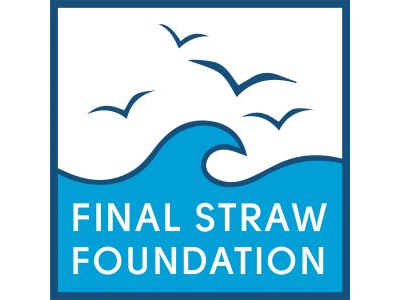
The Final Straw Solent
One of our remits at the Final Straw Solent is to encourage ocean health and promote sustainable practices for all people to use in their day to day lives. We have been encouraging businesses and individuals to reduce the amount of single use plastics they are using, in the hope that this will have a knock on effect to others.
This is where Final Straw Solent link in perfectly with Hayling Island Sailing Club. We are firm believers that change needs to happen, and what better place to start than at sailing clubs where we work and play on our oceans.
As sailors we have a responsibility to care for our oceans and lead by example with our sustainable practices. We love the ocean and we need to take care of it.
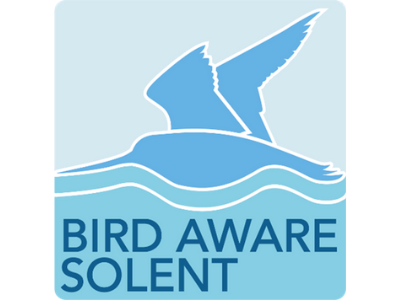
Bird Aware Solent
At high tides shorebirds move from their intertidal feeding grounds around Chichester Harbour to resting sites known as roosts. Black Point is a highly important high tide roost and provides vital refuge to a variety of ducks, geese and wading birds especially in winter.
A species which can be seen at Black Point in flocks of 3000-8000 is the Dunlin. These small waders, which weigh the same as a kiwi fruit, travel from Iceland, Scandinavia and Russia to spend winter with us in the Solent.
Oystercatchers, Knot, Sanderling, Redshank, Grey Plover, Brent Geese and Ringed Plover also congregate here, seeking a safe place to rest. The variety of birds that use this spit together make this a very special place.
We want everyone to enjoy the amazing Solent coast while sharing our shores with the wildlife who call it home.
Please follow these three steps to ensure the birds can use the spit for years to come:
- Avoid walking out onto the spit when the tide is high
- Keep a good distance from the spit whilst out on the water
- Launch and land craft away from the spit
Bird Aware Solent is a Partnership consisting of fifteen Solent councils and four conservation organisations. We aim to raise awareness of protected birds that spend the winter on the Solent, helping people to enjoy the coast whilst giving birds the space they need to feed and rest.
Click here for upcoming events from Bird Aware Solent.
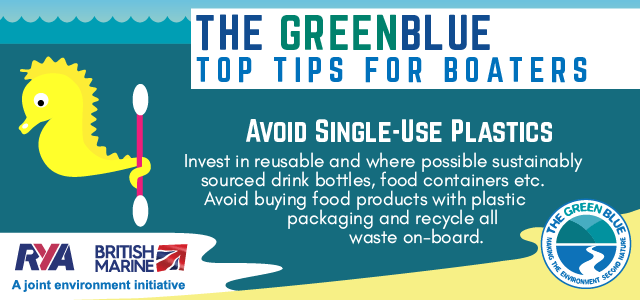
Environmental
Environmental Tips for Cruisers
Clean Harbours Partnership
Kids Environmental Activities
Chichester Harbour Federation
